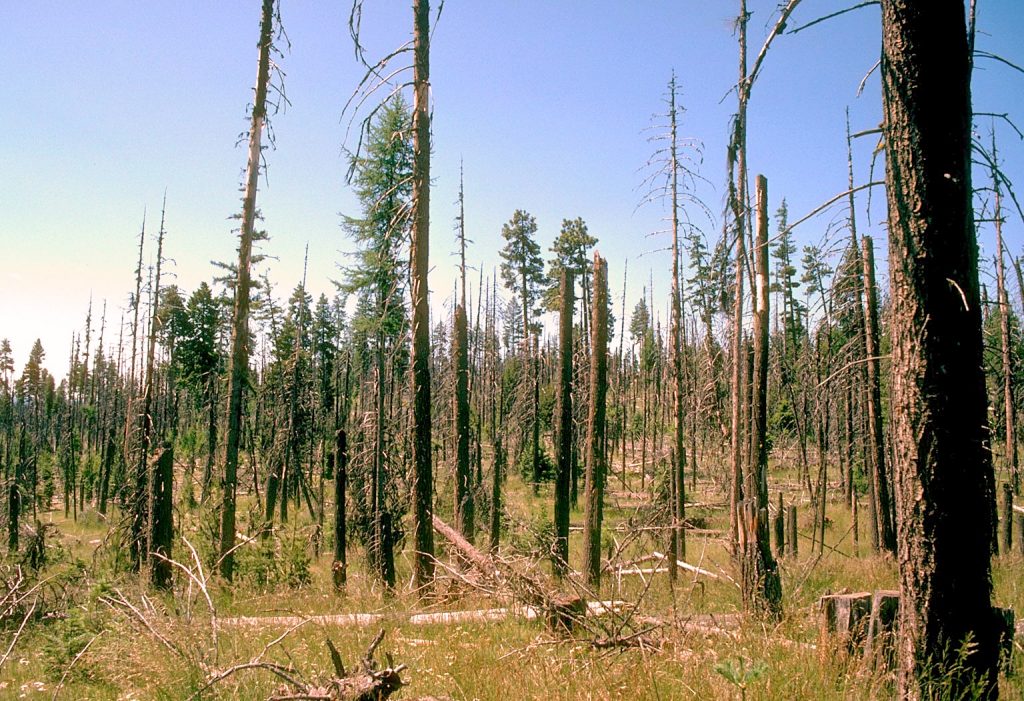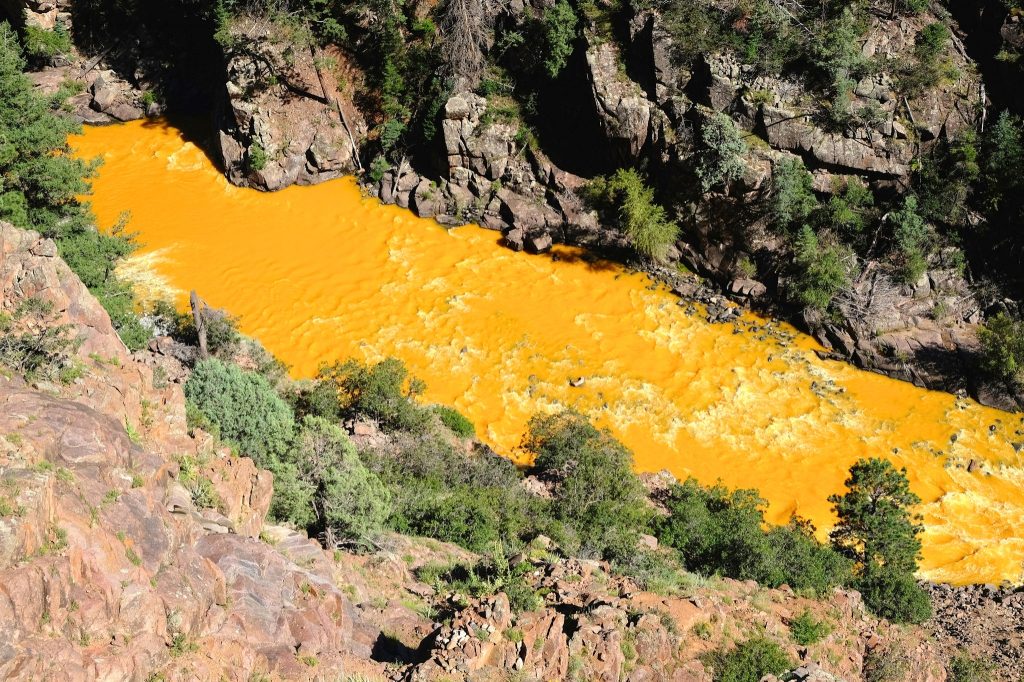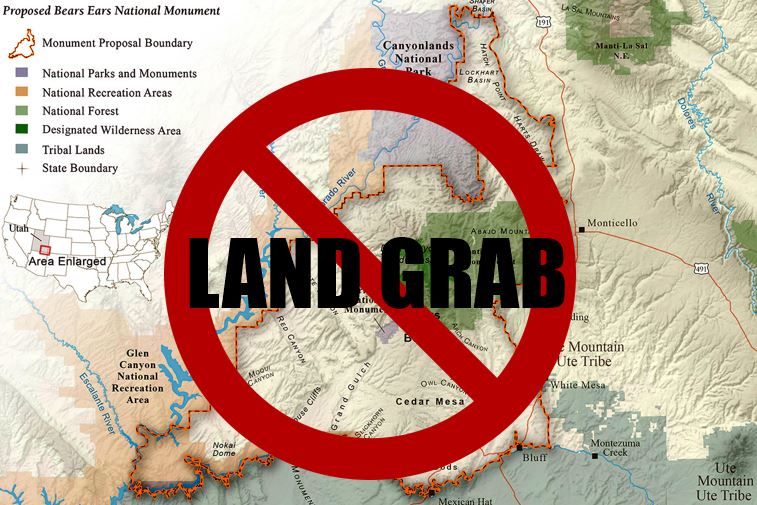President Trump this week ordered BLM to “expeditiously” rescind its hydraulic fracturing regulations and review its methane venting and flaring rule. Zinke also ended the moratorium on new coal leasing, revoked the department’s policy on offsetting development impacts on natural resources, and ordered a review of all its rules on climate change, mitigation and energy development.
Scott Streater

Mike Nedd, the recently appointed acting director of the Bureau of Land Management, spent much of the last eight years defending to Congress budget requests that devoted resources toward the Obama administration’s push to develop renewable energy resources on federal lands.
But if renewables development continues to grow during the next four years in the Trump administration, it won’t be because BLM is emphasizing it, Nedd told E&E News this week during his first sit-down interview since he became acting director two weeks ago.
“We’re going to push all of the energy sources, and my goal is to push all gas, coal, hard-rock, and other minerals and renewable energy, and then we’ll let the market decide which of those energies they want to invest in,” Nedd said. “The minute I start saying we’re going to push one versus the other, then we start picking winners and losers. So we’re going to push all the energy resources, and we’re trying to create that kind of environment.”
When Interior Secretary Ryan Zinke announced Nedd’s appointment, he boasted that the Interior Department “is in the energy business” and that Nedd is an “energy guy” (E&E Daily, March 16).
A 26-year BLM employee, Nedd served as assistant director of energy, minerals and realty management during the Obama administration. He’s credited by agency insiders as a key player in the administration’s renewables energy revolution.
Obama’s BLM approved 60 commercial-scale wind, solar and geothermal energy projects on federal lands that have a total capacity to produce about 15,500 megawatts of electricity — enough to power more than 5 million homes and businesses.
“In 2009, when they came in and said renewable energy was my focus, I felt it was my job to get the resources and make it happen,” Nedd said.
But the former Army special operations officer is now tasked with redirecting the massive agency — with 10,000 employees managing nearly 250 million acres — on a new mission to ramp up oil and gas drilling and coal mining, and not just solar, wind and geothermal power.
“If the secretary wanted to telegraph [to BLM staff] that there’s going to be a greater emphasis on energy development, it sent that message to put Mike in as acting director,” said a former senior BLM official who asked not to be identified.
Nedd cautions that he is working with Zinke to formulate clear policy directives for how BLM will address issues like onshore oil and gas leasing reforms and greater sage grouse conservation.
But there’s no question about the direction the Interior Department and BLM are headed.
President Trump this week ordered BLM to “expeditiously” rescind its hydraulic fracturing regulations and review its methane venting and flaring rule (Climatewire, March 29). Zinke also ended the moratorium on new coal leasing, revoked the department’s policy on offsetting development impacts on natural resources, and ordered a review of all its rules on climate change, mitigation and energy development (E&E News PM, March 29).
The obvious message: Knock down the regulatory barriers to responsible oil and gas drilling and coal and hard-rock mining.
In Nedd, Zinke found the right person to carry this vision forward, said Bob Abbey, the former BLM director during President Obama’s first term.
“The best way I can describe Mike is he’s a good soldier. And by that, I mean he will follow the direction given to him by Secretary Zinke,” Abbey said. “If they want a renewed emphasis on oil and gas development, as it appears they do, Mike will steer the agency in that direction.”
That’s music to the ears of the oil and gas industry and their supporters in Congress, who frequently complained that the Obama administration pushed solar, wind and geothermal power projects to the exclusion of all other energy sources.
“The oil and natural gas industry is not looking for any advantages. We just want regulatory certainty and the removal of obstacles put in place over the last eight years by bureaucrats at every level of BLM and the White House meant to stop responsible energy development on appropriate federal and tribal lands,” said Kathleen Sgamma, president of Denver-based Western Energy Alliance.
Abigail Ross Hopper, president and CEO of the Solar Energy Industries Association, said she agrees “the market should drive energy choices” and that the industry will be fine. The recent buildup in wind and solar has helped lower the cost to produce electricity from such sources enough that “solar has become the lowest-cost energy source available” in some states, she said.
But there’s angst among some in the renewable energy industry.
“I think a lot of the industry is frustrated right now,” said Amit Ronen, director of the George Washington University Solar Institute in Washington “These investments, utility-scale investments, especially the very large [solar] arrays in the desert, are multibillion-dollar facilities. But it’s hard to imagine a lot of that coming up again anytime soon because of the uncertainty and the clear bias for other uses of the areas.”
Nedd insists BLM has no intention of abandoning renewable energy.
He said BLM plans to hold more lease sales inside designated solar energy zones (SEZs) established under the Obama administration — but only if the solar industry pursues them.
He also said the agency is working to establish the first-ever wind energy zones on federal lands in Wyoming, Idaho and Oregon — a major unfinished priority under the Obama administration.
“California, we know, has a [renewable] portfolio standard that they’re trying to meet; we know that Nevada has a portfolio standard that they’re trying to meet,” he said. “And so if the industry decides to invest in one [energy source] over the other, hopefully we’ve created an environment where they can choose that.”
An ‘outdoors guy’
Nedd is a private man who would rather discuss energy policy than his personal life.
He considers himself “a career civil servant” whose job “is to serve the American public however I can without getting into the political fray of it.”
He politely declined to say whether he would like to one day be named the permanent BLM director or if he’d let Zinke know he’d like to be considered for the job.
“Who would have thought, a guy coming to the BLM in ’91 would end up being the acting director?” he said. “If I do nothing else, this is my biggest accomplishment.”
Nedd was born and raised in Guyana, South America, before immigrating to the United States as a young adult in 1976.
As a child growing up in Guyana, Nedd said he was constantly playing outside in the lush, tropical environment with his friends. It was there, he said, that he found his appreciation for nature, and it eventually sparked his interest in working for the National Park Service, and then BLM.
“I was always an outdoors guy,” he said. “I climbed every tree I could find, fished from every river where we could find a lot of fish. I grew up in the outdoors.”
Nedd joined the Army after moving to America. He quickly rose through the ranks, eventually serving with a military intelligence unit with the Army’s Special Operations stationed in Augsburg, Germany. He left in 1985 as a warrant officer.
Nedd received a master’s degree in information and systems management from Strayer University in Herndon, Va. He worked as a systems analyst for the state of South Carolina and as chief of information management for NPS.
He joined BLM in 1991 and has held a variety of positions, including director of the agency’s Eastern States Office and deputy chief information officer.
In 2007, he was named assistant director for energy, minerals and realty management. In that role, Nedd was one of several agency leaders who was instrumental in putting the infrastructure in place to review and permit large-scale solar, wind and renewable energy projects, said Abbey, the former BLM director.
Abbey said that Nedd was responsible for ensuring financial resources and the proper personnel were there to review and approve dozens of permit applications for projects across the West.
“He also helped provide justifications over the years for our budgets before Congress,” occasionally taking hits as some GOP leaders pushed back against the Obama administration’s focus on renewable energy.
During testimony at an August 2012 House Energy and Commerce Subcommittee on Energy and Power hearing, Nedd defended the Obama administration’s approach to oil and gas development on federal lands, saying BLM must consider a wide array of factors in evaluating whether to approve energy projects.
“We are mindful of our responsibility for stewardship of natural resources and public assets that generate substantial revenue from federal onshore oil and gas royalties directed to the U.S. Treasury and to the states, and which provide well-paying jobs in local economies,” he testified.
That view has not change, Nedd said.
But the mission of BLM has shifted, a situation he likens to his experience in the Army.
“I’m a military guy first and foremost, and in the military we have different missions, and so when that [new] mission comes forward, you prepare for it and you’re going to accomplish that mission,” he said. “Our mission today is to push all of the energy sources, and we’re going to, by golly, move forward and try to accomplish that.”
Lease reforms, sage grouse
Nedd said that final decisions have not been made on several other major issues, such as the fate of federal onshore oil and gas leasing reforms unveiled by former Interior Secretary Ken Salazar in 2010.
The leasing reforms included provisions as specific as outlining steps to increase public involvement in the leasing process and more general policy reforms such as acknowledging that oil and gas leasing is only one of many uses of public lands, and in some instances is not the best use of the public land. They resulted in reducing the number of legal protests of industry-nominated sites, speeding up the oil and gas leasing process.
Nedd noted in testimony before Congress in 2012 that lease protests fell from 47 percent prior to the 2010 reforms to 36 percent in 2011, “and the BLM believes that these reforms will result in fewer protests and therefore quicker approval [of leases] in the future.”
Today, all he will say is that they are under review.
“In 2010, when the leasing reform was proposed, it addressed certain challenges. The biggest challenges were mitigation and protests,” he said. “We’re looking to see seven years later, have we accomplished that? If yes, fine, if no, what do we need to do?”
The leasing reforms also included establishing so-called master leasing plans (MLPs) that identified where activities like oil and natural gas leasing should be allowed to occur and where they shouldn’t.
Salazar’s first formal act as secretary in 2009 was to withdraw 77 oil and gas leases in Utah that were close to national parks and monuments, including Arches National Park, eventually sparking the leasing reforms the following year.
“I think those are all under review, more information to come,” Nedd said.
The same goes for the sweeping federal greater sage grouse conservation plans finalized in 2015.
Some observers foresee the Interior and Agriculture departments significantly revising the sage grouse plans, which amended 98 BLM and Forest Service land-use plans to incorporate protective measures covering nearly 70 million acres of sage grouse habitat in 10 Western states.
Trump has made it clear that all regulations that pose obstacles to energy development on public lands are under review, and that includes the grouse plans.
“I think with the new team in we’re sort of relooking the positions on these things and trying to figure out how best to serve the American people, recognizing the president’s priority is to make America safe through energy independence among other priorities,” he said.



